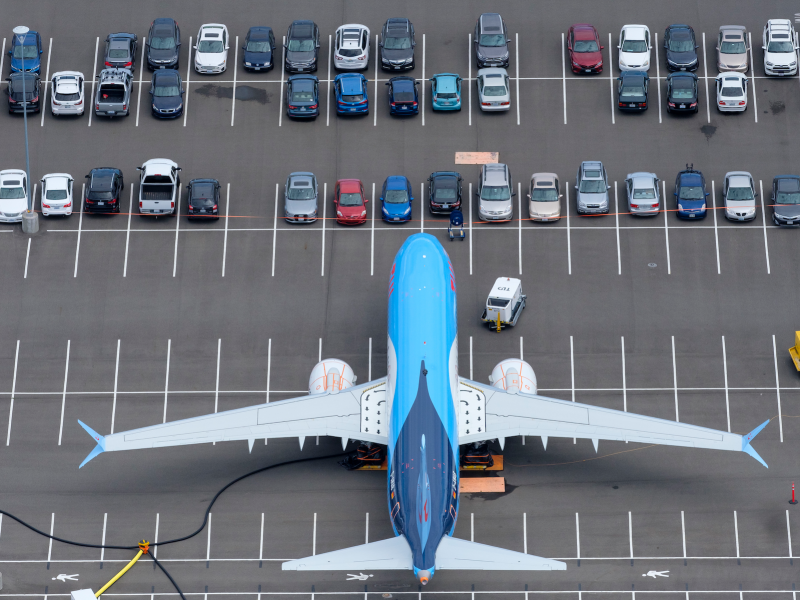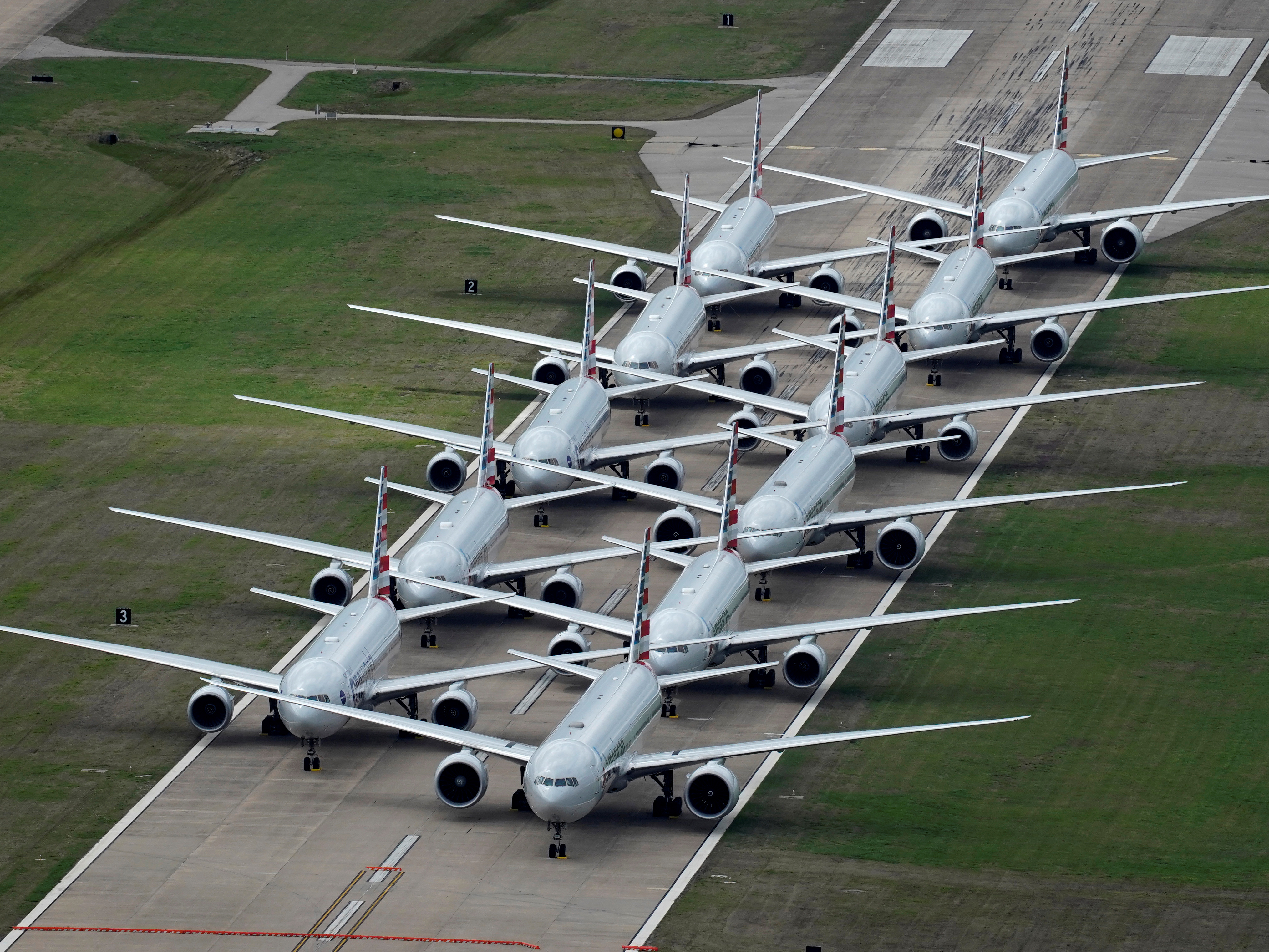- The world’s airports are being converted into storage facilities for aircraft as airlines drastically reduce their operations.
- Frankfurt Airport, Copenhagen’s Kastrup Airport, and Hartsfield-Jackson Atlanta International Airport, among others, have closed runways and taxiways to store excess aircraft from major airlines.
- US airlines are also flying their aircraft across the continent for favorable storage conditions found in the southern region of the country.
- Visit Business Insider’s homepage for more stories.
The impact of the coronavirus has seen thousands of planes restricted to terra firma for the time being and space is becoming limited. Some US airlines are sending their planes to temporary homes in the desert designed for long-term aircraft storage.
What once were major international transit hubs including Hartsfield-Jackson Atlanta International Airport and Frankfurt Airport are now storage areas for the aircraft of their tenants as space is more useful as a parking lot than a runway
A stark reduction in the demand for travel combined with government travel bans have crippled the airline industry and forced their aircraft to sit idle on the ground instead of in the air where they belong. Some airlines are temporarily closing up shop entirely.
Aircraft still flying are largely going empty as travelers are canceling their bookings en masse for fear of contracting the virus or being stranded as more countries continue to close their borders and airlines unpredictably change their flying schedules.
Take a look at how the world's airports have transformed into storage facilities.
The world's largest airline, American Airlines, is preparing for a scale back in flying for April by grounding its planes at airports across the country.

Tulsa International Airport in Oklahoma has been one of the recipients of American's narrow-body aircraft such as the Boeing 737-800, as well as some wide-bodies including the Boeing 777-200.

American operates a maintenance facility in Tulsa, where runways and taxiways have been closed to house the overflowing grounded aircraft.
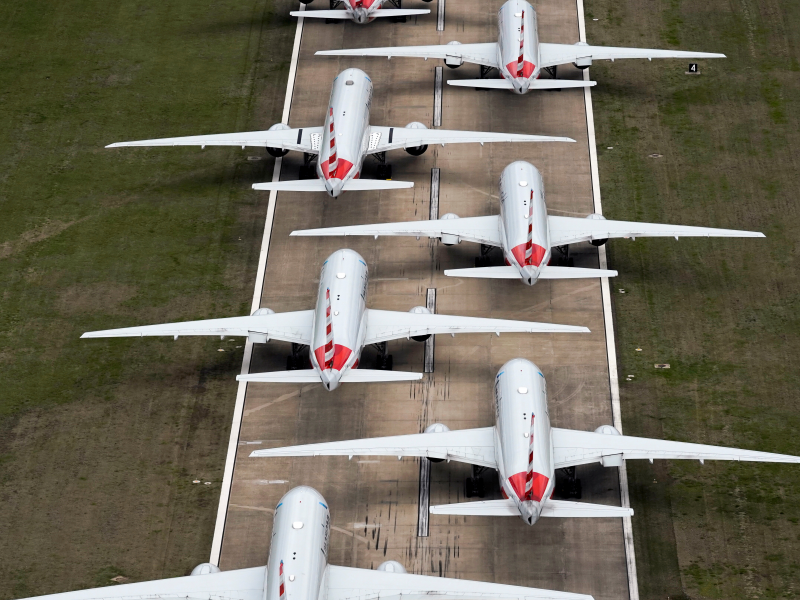
Robert Isom, president of American Airlines, wrote in a letter to employees on March 19 shared with Business Insider that over 55,000 flights will be cut in April as the airline reduces international flying by 75% and domestic by 30%.
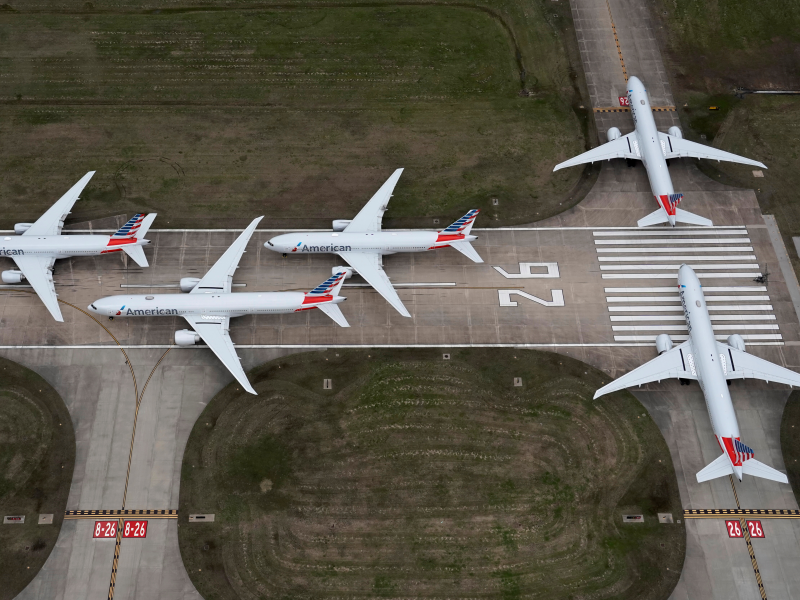
Nearly 500 aircraft will be grounded, the letter also stated, an approximate 50% reduction as the airline has almost 1,000 aircraft in its stable.
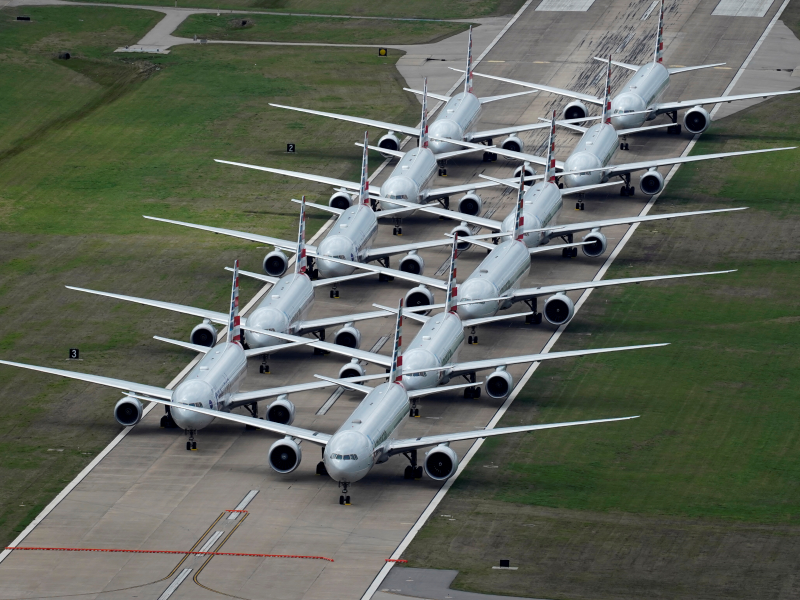
Source: AirFleets.net
In Denmark, Scandinavian Airlines announced that most of its flying would cease due to increasingly low demand and its fleet would be largely grounded as a result.
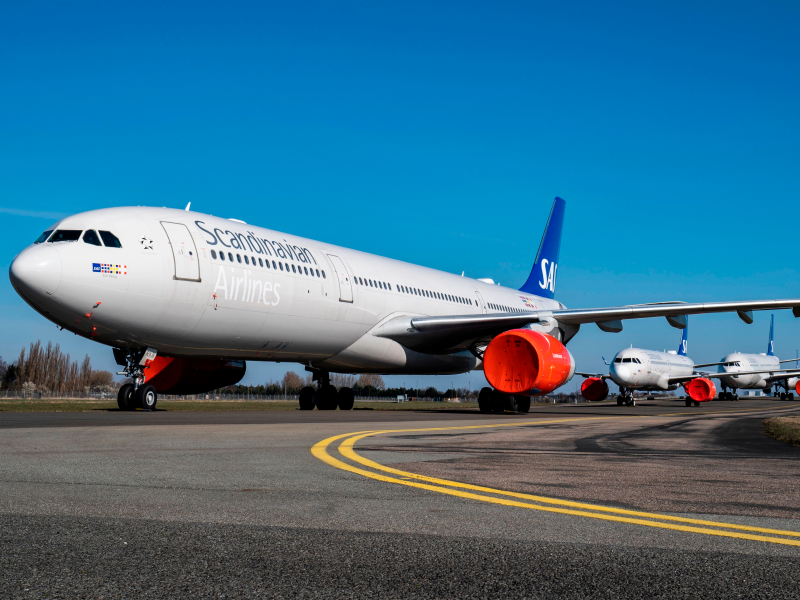
Source: Scandinavian Airlines
The airline was one of the first in Europe to nearly shutter its entire operation as the virus spread beyond Italy's borders and Scandinavia became subject to travel bans.
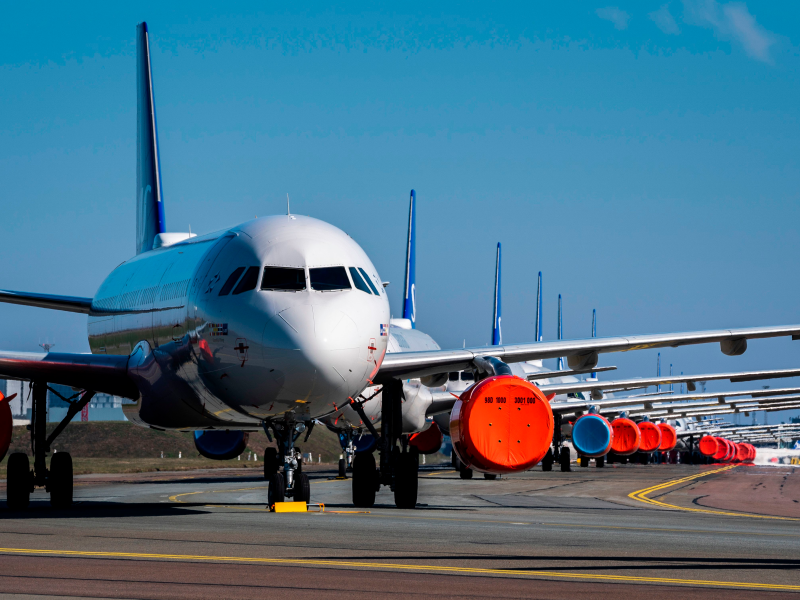
Copenhagen's Kastrup Airport, among others, is housing the airline's grounded narrow-body and wide-body jets, of which the airline operates around 150.
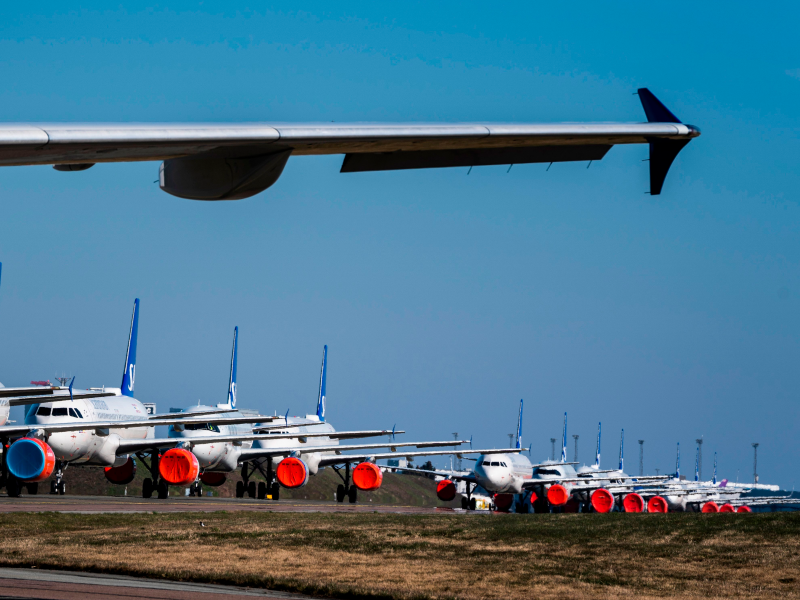
Source: AirFleets.net
Before the crisis, SAS was in the midst of a fleet renewal that saw the introduction of new Airbus aircraft including the A350-900 XWB and A320neo. The aircraft now line taxiways at the Danish capital's gateway airport, where Scandinavian Airlines maintains a hub.
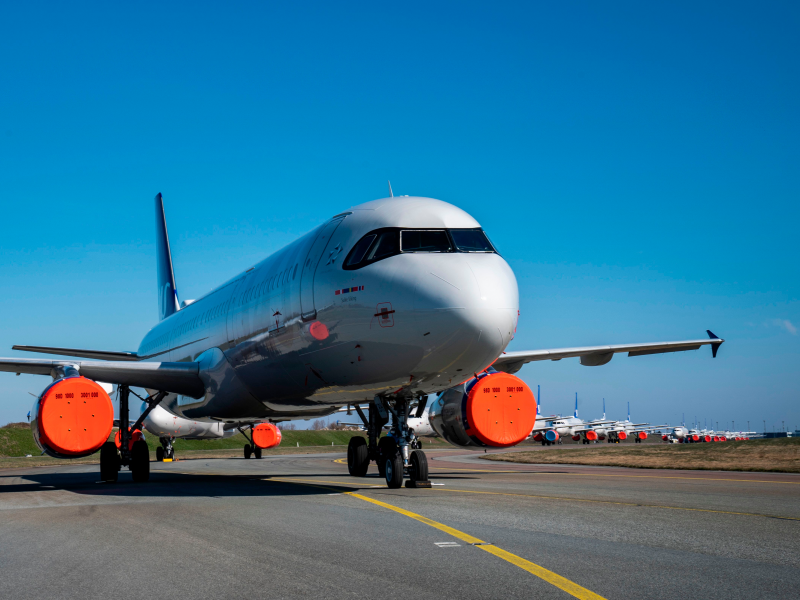
In Germany, the Lufthansa Group has grounded 700 aircraft, leaving only 63 flying across its member airlines.
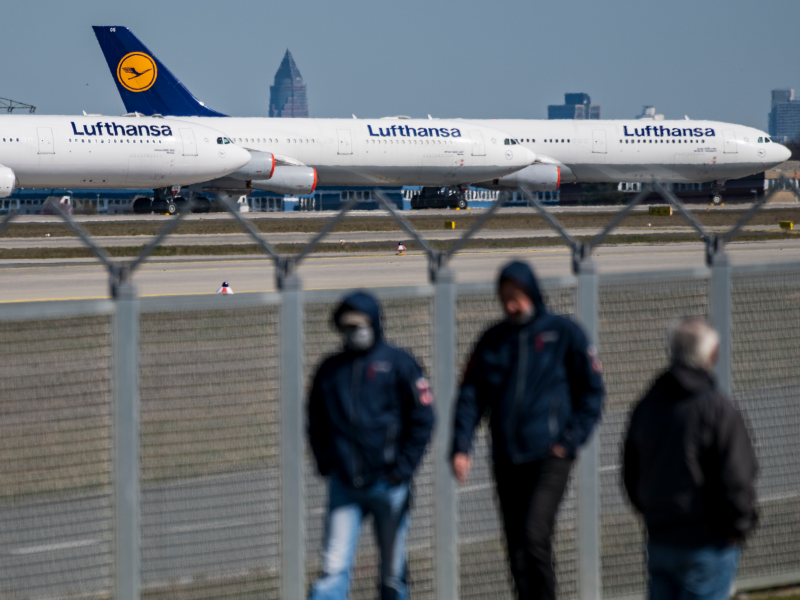
Source: Lufthansa Group
Subsidiary airlines of the group include Lufthansa, SWISS, Austrian, Brussels Airlines, Eurowings, and Air Dolomiti, three of which have temporarily ceased flying.
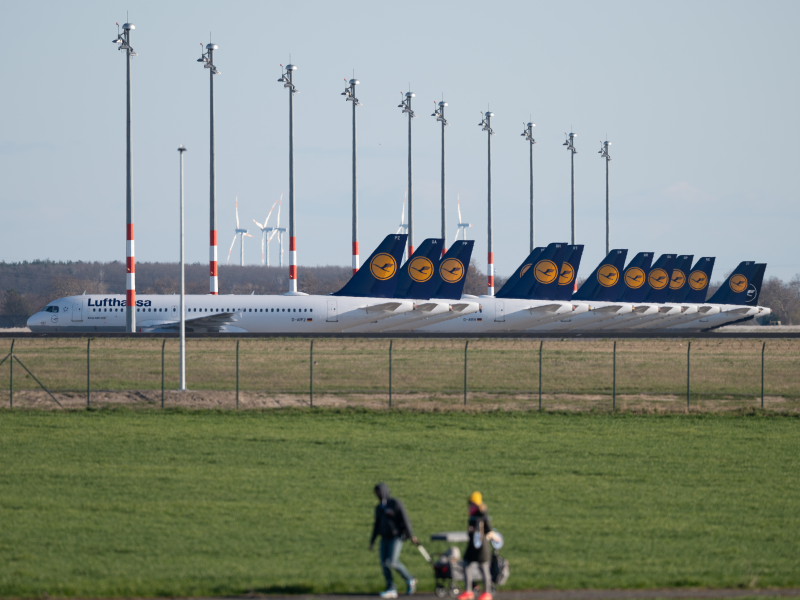
Namesake airline Lufthansa has been storing aircraft at its main base in Frankfurt where runways and taxiways have been closed to house the aircraft.
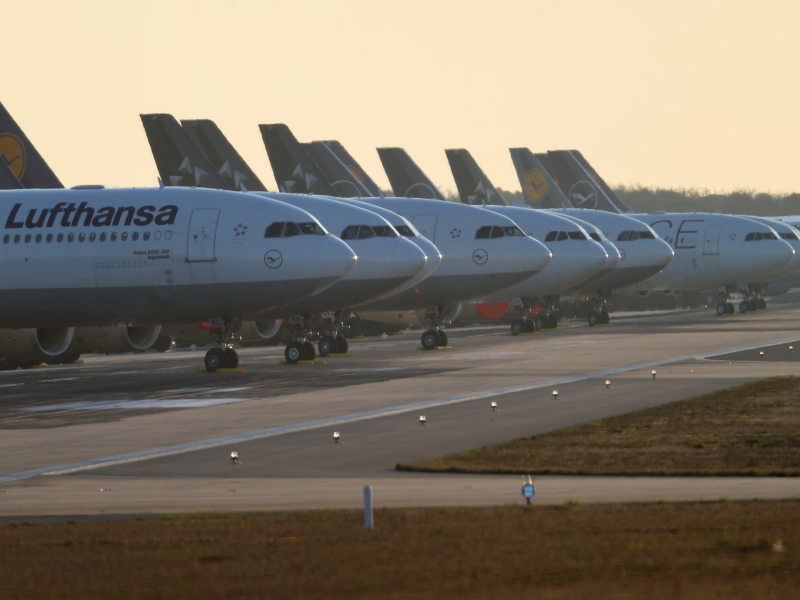
What remains of the flying Lufthansa fleet includes cargo aircraft and aircraft flying relief and repatriation missions across the world.
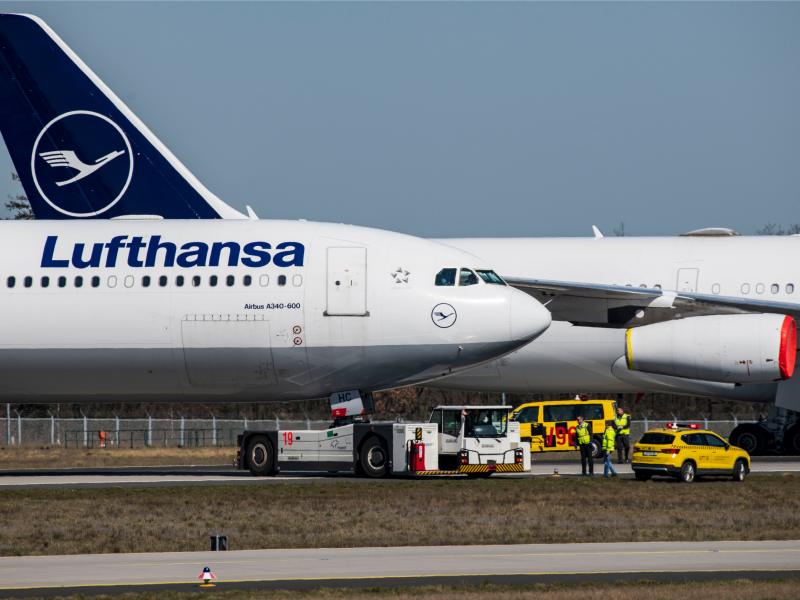
Source: Lufthansa Group
Frankfurt Airport, one of Europe's busiest transit hubs, is now a glorified parking lot for Lufthansa aircraft.
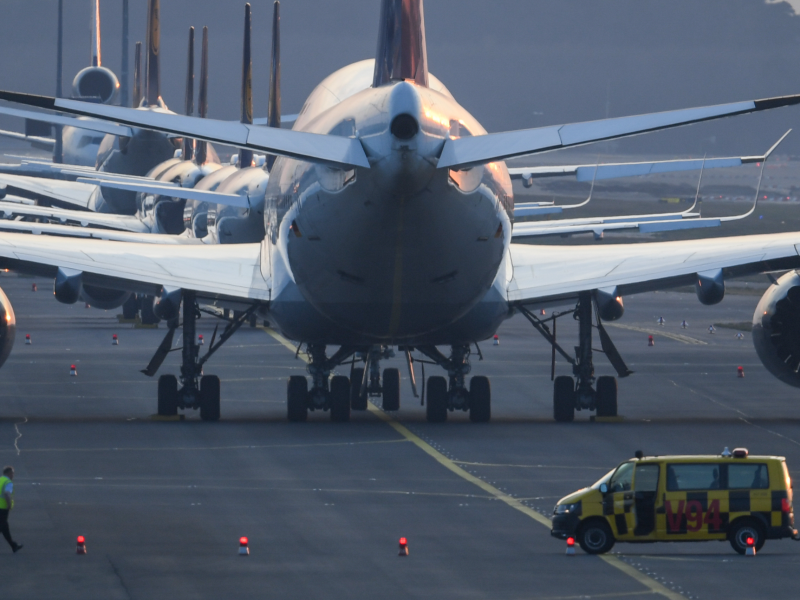
In the UK, British Airways has sent a majority of its narrow-body aircraft to temporary homes across Britain as it scales back flying.
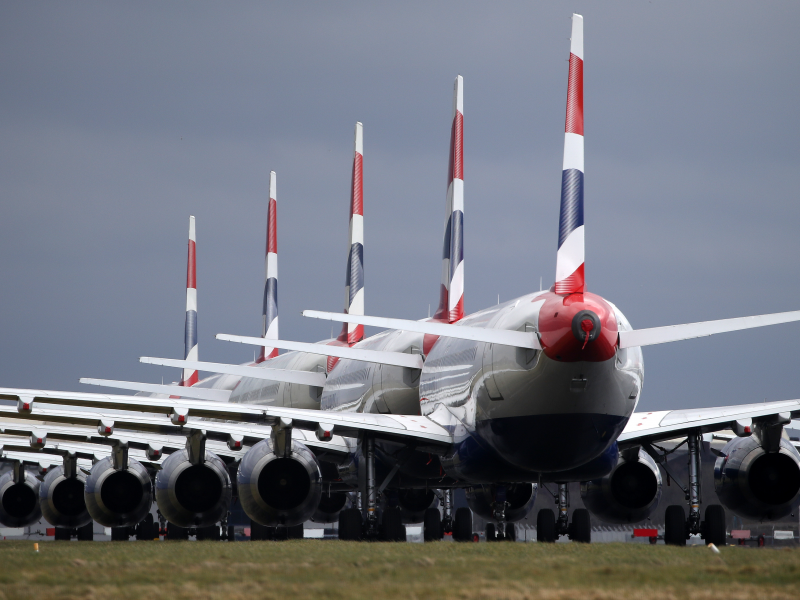
The airline's parent company, the International Airlines Group, announced reductions in capacity of 75% at minimum for subsidiary airlines including British Airways.

Source: International Airlines Group
Rather than stay in London, British Airways flew some of its jets to less congested airports including Glasgow Airport and Bournemouth Airport.
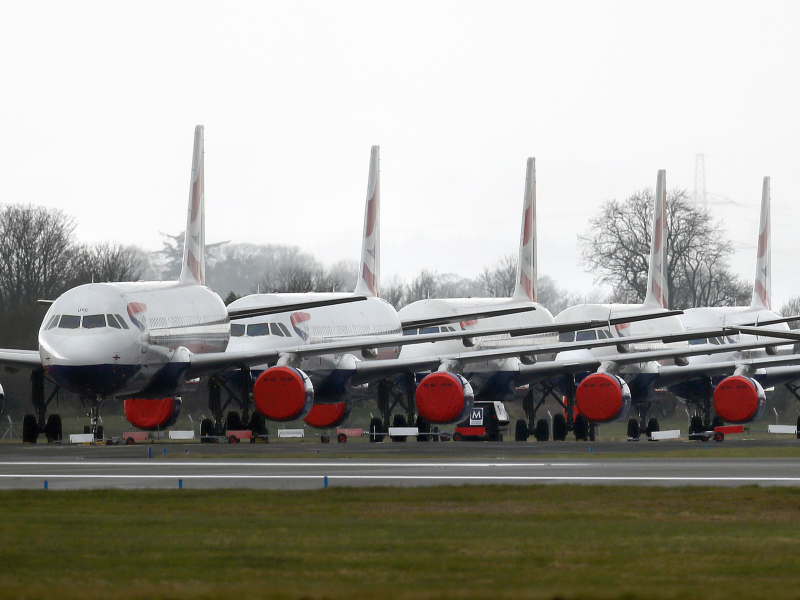
Back in the US, Delta Air Lines has converted its busiest hub into a storage facility by parking planes at Hartsfield-Jackson International Airport in Atlanta.
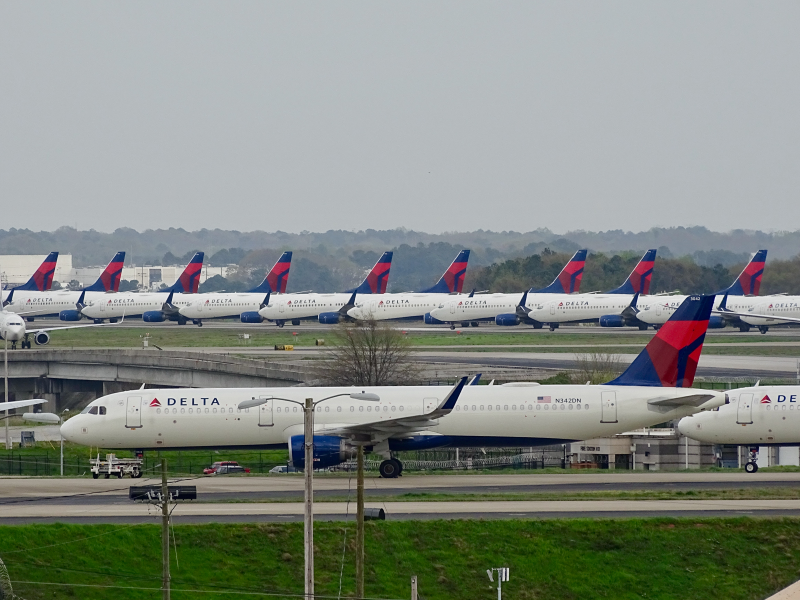
Delta aircraft have always been a common sight in Atlanta but now grounded jets from across Delta's fleet line newly-closed taxiways across the airfield.
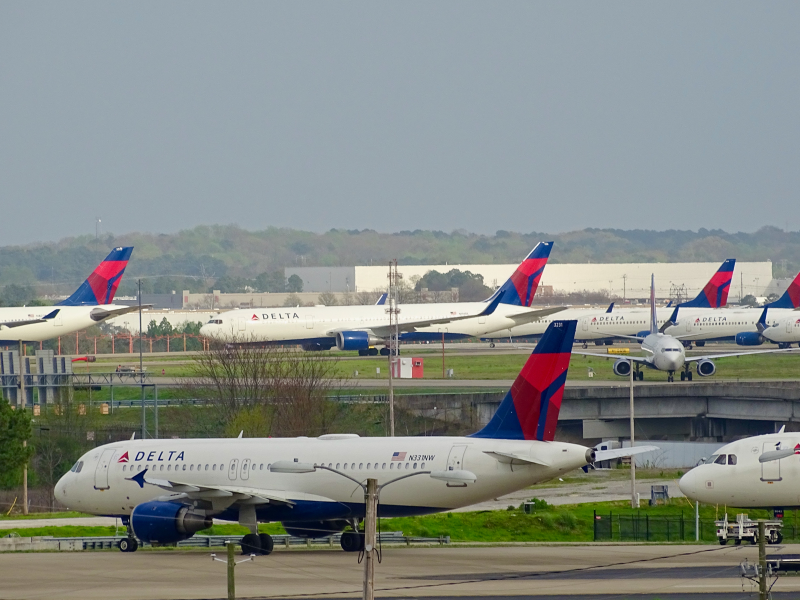
Though normally the busiest airport in the US, Atlanta has closed one of its runways to house Delta aircraft as the airline is the largest tenant at the airport.

The airline's CEO Ed Bastian wrote in a public memo to employees that over 600 aircraft will be grounded, more than half the airline's fleet.
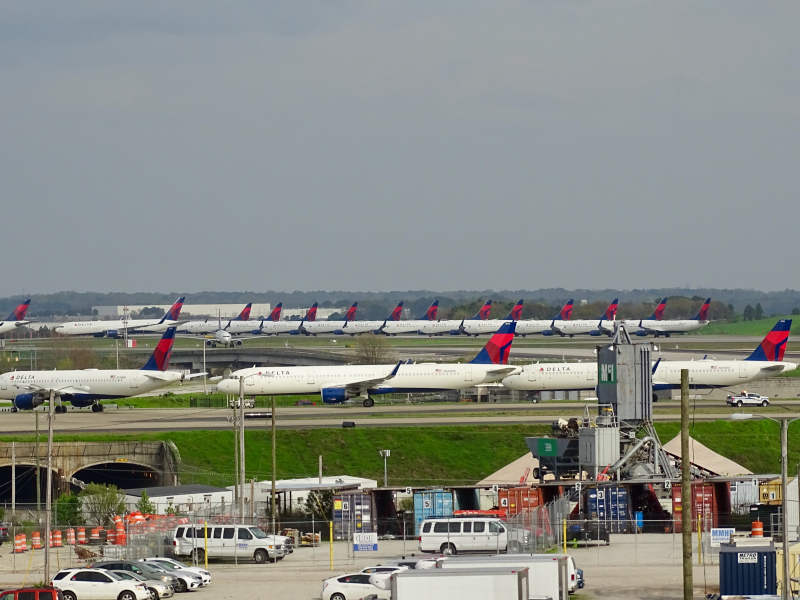
Source: Delta Air Lines
Delta maintains a fleet of just over 900 aircraft, making it the second-largest airline in the world behind American in terms of fleet size.
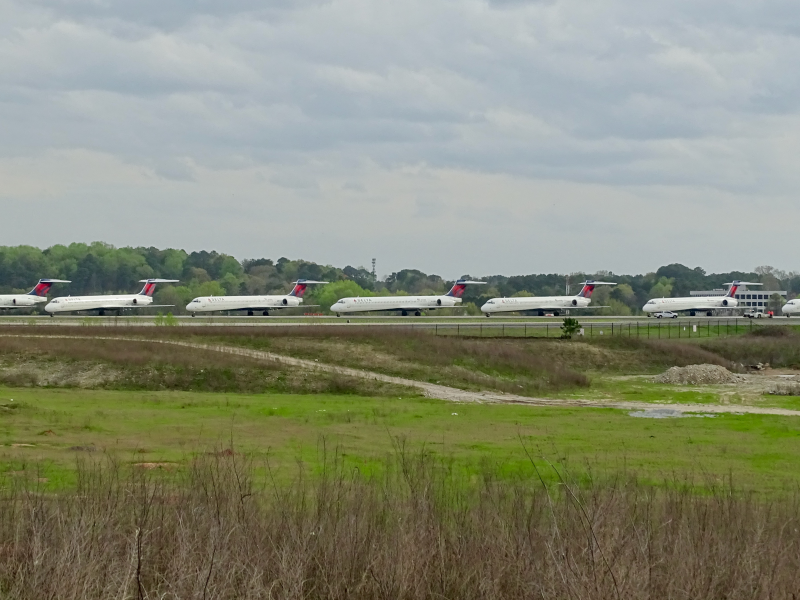
Source: AirFleets.net
In the coming months, Delta's network will be scaled back by 70% with international flying taking the greatest hit as demand for overseas travel dwindles.
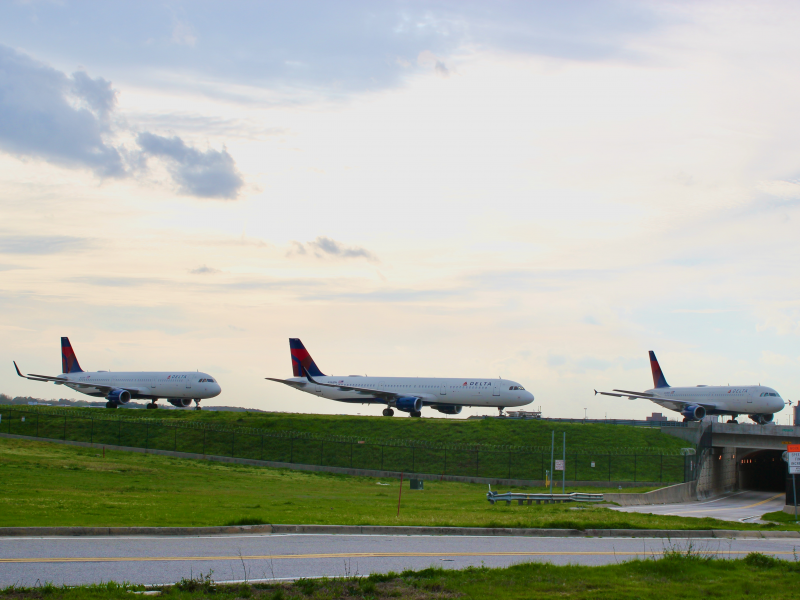
Source: Delta
Bastian also stated that Delta will take this opportunity to speed up the retirement of aging aircraft including the McDonnell Douglas MD-80 and MD-90 series aircraft, as well as the Boeing 767-300ER.
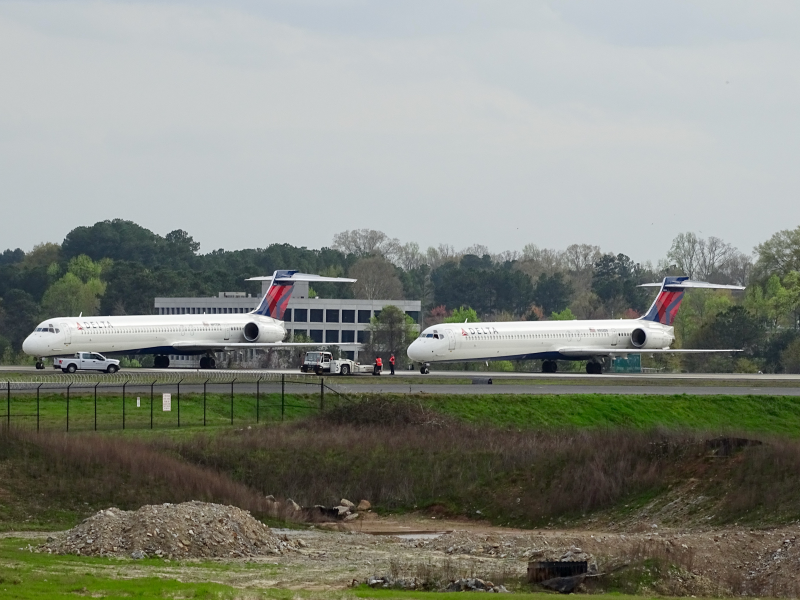
Source: Delta
Delta has also sent planes to the desert with Pinal Air Park in Marana, Arizona, and Southern California Logistics Airport in Victorville, California seeing new Delta arrivals.
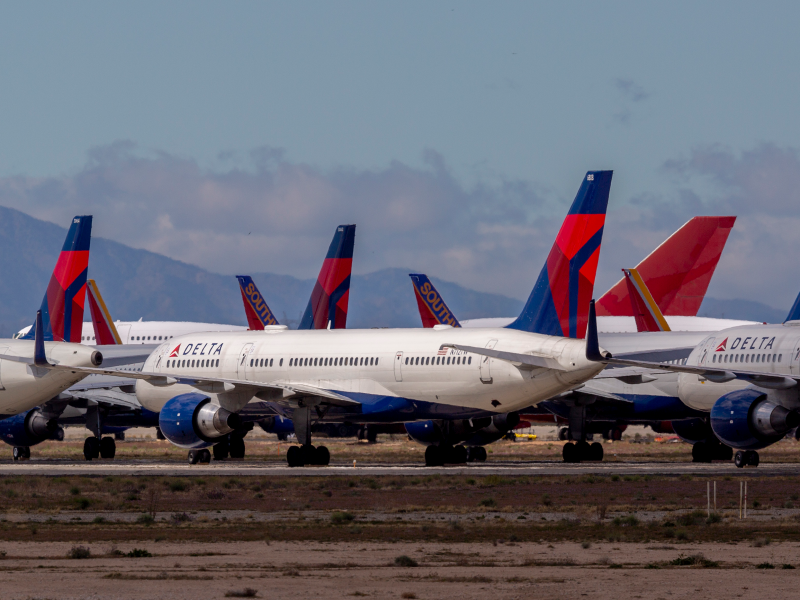
Airlines have sought favorable storage conditions for the aircraft including warm weather as the duration of the stay is unknown, which is why airports in the lower latitudes are preferable.
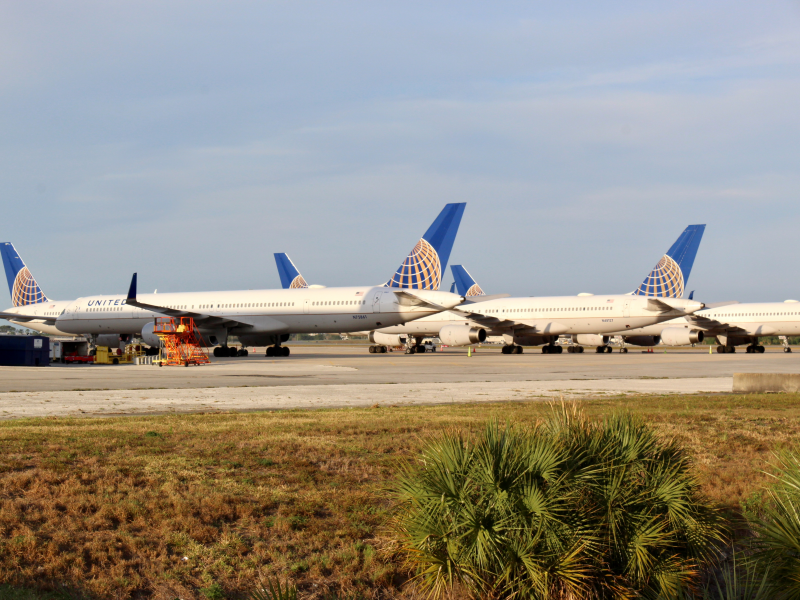
One location where United is storing its jets is Orlando International Airport, an outstation for the Chicago-based airline.
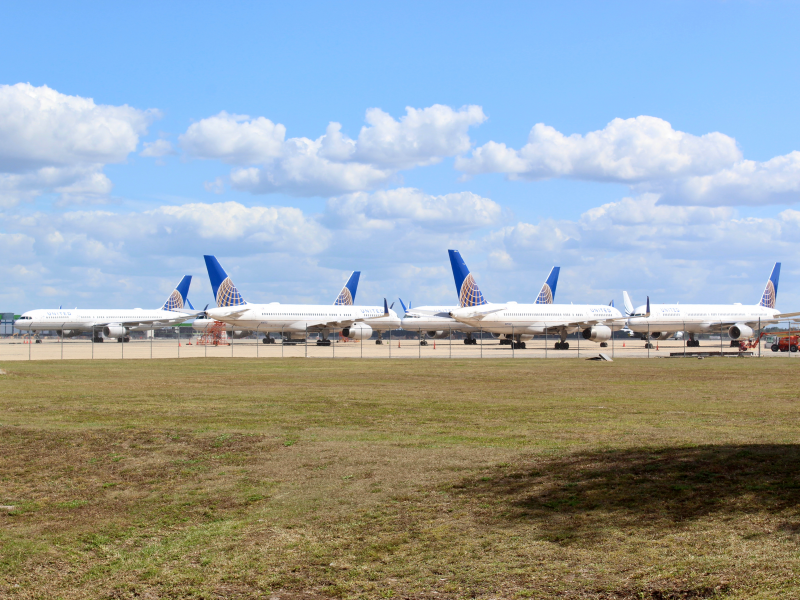
United has sent a mix of narrow-body and wide-body aircraft to Orlando including the Boeing 757 and Boeing 767. The airline has also sent jets to Roswell, New Mexico, among others.
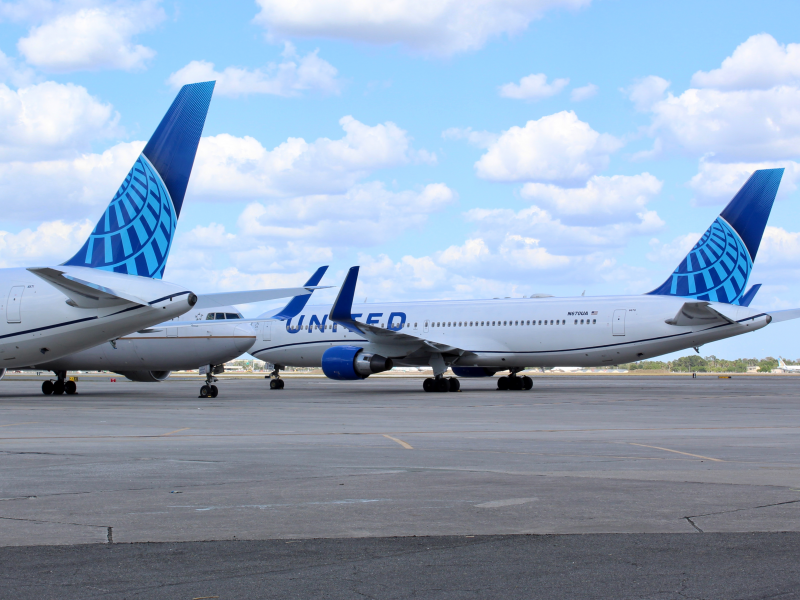
Even before the crisis, space was limited at most storage facilities due to the unexpected arrival of another aircraft: the Boeing 737 Max.

After the aircraft was grounded in March 2019, the three US operators of the type including United, American, and Southwest rushed to house their aircraft for the long-haul.

While Boeing hoped for a quick fix and continued production, the aircraft remains grounded over one year later and airports across the country have been overflowing with Max aircraft unable to be delivered to their owners, occupying valuable space.
